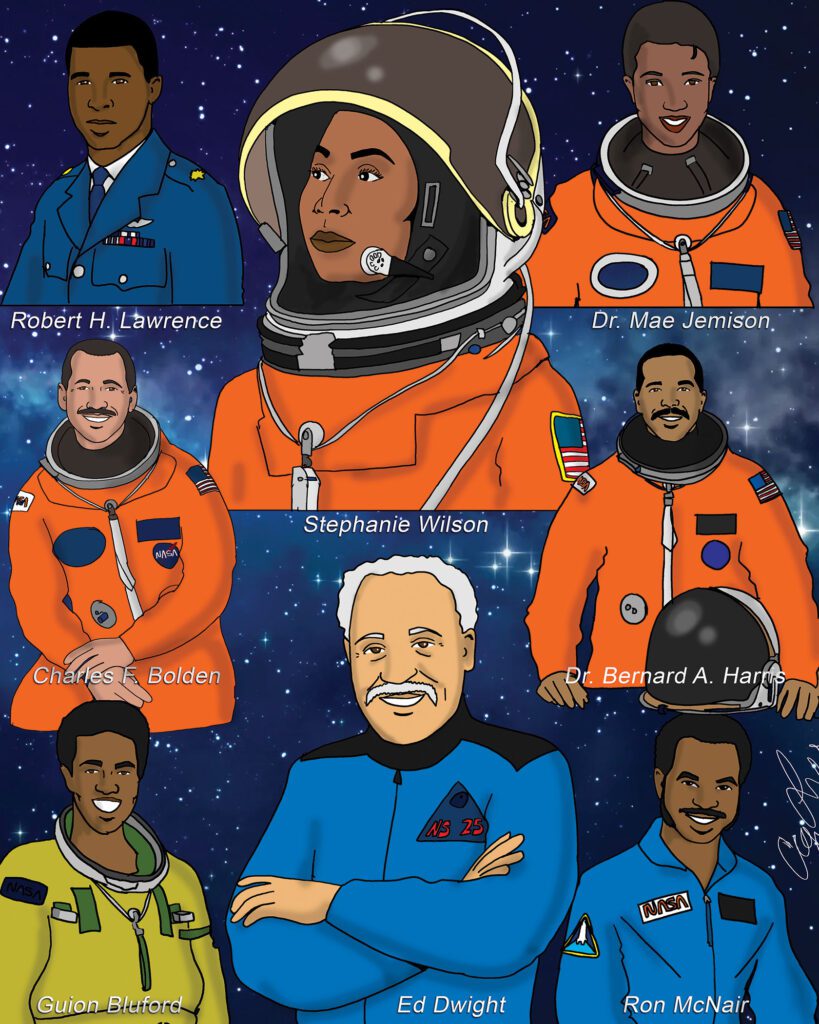Dreams can come true: America’s first Black astronaut candidate finally goes to space at age 90

As we look back in time to evaluate how our society treated Black and brown military men and scientists in the 1960s, it is not surprising to hear the many stories of discrimination and obstacles to career advancement caused by racial bias. Though the military was integrated in 1948, segregationist attitudes persisted in the armed forces long after President Harry Truman signed his landmark executive order. “I am asking for equality of opportunity for all human beings,” said Truman in response to his critics, “and as long as I stay here, I am going to continue that fight.”
But it took a long time for the message to fully sink in. President John F. Kennedy, viewing the line-up of astronauts preparing to soar into space in the early years of exploring the final frontier, had to order NASA to integrate the ranks. In the early 1960s, Ed Dwight thus became America’s first Black astronaut candidate, a member of the corps assembled to accomplish Kennedy’s vision of landing a man on the moon by the end of the decade.
But Dwight, an Air Force captain and pilot, was passed over for the 1963 class despite finishing in the top half of the test pilot school. His dream of space flight became a dream deferred. He tells the story of his extraterrestrial ambitions in his autobiography, “Soaring on the Wings of a Dream: The Untold Story of America’s First Black Astronaut Candidate.”
Dwight had been up to 80,000 feet in test flights during his Air Force career but breaking through the barrier of Earth’s atmosphere was not to be — until last Sunday, when he flew four times that altitude aboard the New Shepard. Making his first trip to space at age 90, Dwight and five crewmates rocketed into the void courtesy of billionaire Jeff Bezos. The West Texas launch was the first in two years by the Amazon founder’s Blue Origin initiative, a commercial space venture.
Dwight was joined in the capsule by Mason Angel, a venture capitalist; aviator Gopi Thotakura; Carol Schaller, a retired accountant; entrepreneur Kenneth Hess; and Sylvain Chiron, founder of a French craft brewery. The rocket carried them 347,000 feet above the Earth’s surface and crossed the Karman line, which demarcates the boundary of space.
The 10-minute suborbital flight made Dwight the oldest person to ever travel into space, eclipsing Star Trek captain William Shatner, who flew on the New Shepard rocket in 2021. After the flight, Dwight exited the capsule and raised two fists in the air in victory. “Fantastic!” he exclaimed. “A life-changing experience. Everyone needs to do this!”
And for Dwight, not just once. “I didn’t know I needed this in my life,” he said, “but now I need it in my life.”
The undisclosed cost of Dwight’s ticket was shared by Blue Origin and the non-profit Space for Humanity among others.
After Dwight was left behind on the launching pad of an astronaut’s career in 1963, 20 years would pass before America sent its first Black astronaut into space, with Guion Bluford’s 1983 voyage aboard the six-day Space Shuttle Challenger flight.
But the first person of African descent to burst through Earth’s limits was Cuban astronaut Arnaldo Tamayo Méndez, who spent eight days aboard the Soviet Salyut-6 space station in 1980. According to NASA, the Cuban Air Force had selected Tamayo Méndez as part of a Soviet Union program that flew cosmonauts from friendly socialist countries on short visiting flights to their space stations to conduct experiments for their national space programs and academic institutions.
There have been many Black U.S. astronauts since Bluford’s 1983 flight, including MIT graduate Ronald McNair, who played a saxophone in space during one of his flights. McNair tragically died in the 1986 Challenger accident.
Seeing Dwight on his recent flight served to remind us of the struggles and uncertainties faced by those who test the limits of tolerance and inclusion. Dwight left the military in 1966, three years after his disappointing exclusion from the NASA astronaut class. He joined IBM and eventually started his own construction firm. In the late 1970s, he found his own new frontier in earning a master’s degree in sculpting to craft memorials and monuments to prominent figures in Black history. His celebrated work was even included in space flights.
“I’ve got bragging rights now,” Dwight told NPR after returning to Earth. “All these years, I’ve been called an astronaut, but now I have little [astronaut] pin, which is…a totally different matter.”
For this 90-year-old African American man to be given an opportunity to live out his lifetime dream should give us all hope that it’s never too late to live out your dreams and that justice — no matter how late it is in coming — is still worth fighting for.
“I want to go into orbit,” Dwight said to NPR. “I want to go around the Earth and see the whole Earth. That’s what I want to do now.”







